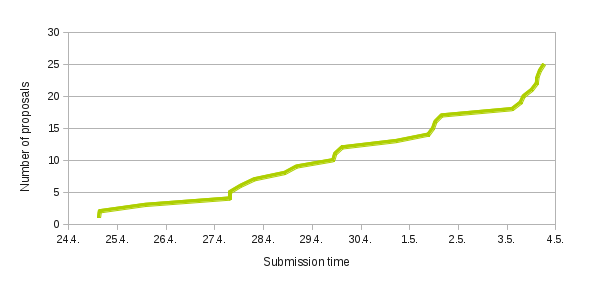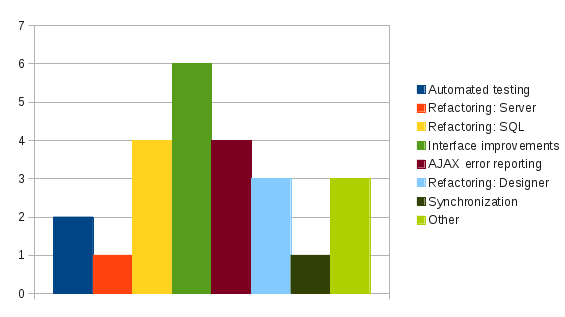Weblate 1.6 has been released today. It comes with lot of improvements, especially adds voting for suggestions, improves import performance and brings more helpful admin interface. This is also first release with crowdfunded feature, but there are still some features to fund!
Full list of changes for 1.6:
- Nicer error handling on registration.
- Browsing of changes.
- Fixed sorting of machine translation suggestions.
- Improved support for MyMemory machine translation.
- Added support for Amagama machine translation.
- Various optimizations on frequently used pages.
- Highlights searched phrase in search results.
- Support for automatic fixups while saving the message.
- Tracking of translation history and option to revert it.
- Added support for Google Translate API.
- Added support for managing SSH host keys.
- Various form validation improvements.
- Various quality checks improvements.
- Performance improvements for import.
- Added support for voting on suggestions.
- Cleanup of admin interface.
You can find more information about Weblate on it's website, the code is hosted on Github. If you are curious how it looks, you can try it out on demo server. You can login there with demo account using demo password or register your own user. Ready to run appliances will be soon available in SUSE Studio Gallery.
Weblate is also being used https://l10n.cihar.com/ as official translating service for phpMyAdmin, Gammu, Weblate itself and others.
If you are free software project which would like to use Weblate, I'm happy to help you with set up or even host Weblate for you.

